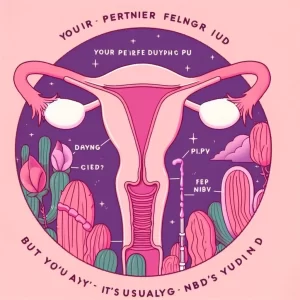What Is a Cardiologist?
Cardiologists specialize in diagnosing and treating diseases and conditions that affect the cardiovascular system, consisting of the heart and blood vessels. These specialists practice the prevention and health care for patients with heat-related illness and cardiovascular disease as well as cardiac emergencies.
When you are dealing with a complex health condition like heart disease, it is important that you find the right match between you and your specialist. A diagnosis of heart or vascular disease often begins with your primary care doctor, who then refers you to a cardiologist. The cardiologist evaluates your symptoms and your medical history and may recommend tests for a more definite diagnosis. Then, your cardiologist decides if your condition can be managed under his or her care using medicines or other available treatments. If your cardiologist decides that you need surgery, he or she refers you to a cardiovascular surgeon, who specializes in operations on the heart, lungs, and blood vessels. You remain under the care of your cardiologist even when you are referred to other specialists.
What Does a Cardiologist Do?
Cardiologists are qualified to treat heart attacks, heart failure, heart valve disease, arrhythmia, and high blood pressure. Cardiologists work in hospitals as well as private practices.
To make a diagnosis, cardiologists may give physical exams, order tests — such as an electrocardiogram (EKG), blood tests, exercise stress tests — as well as interpret tests. They may also prescribe medicine, recommend lifestyle changes such as diet, exercise, reducing stress levels, and managing weight. Cardiologists can perform procedures such as implanting a pacemaker or inserting a cardiac catheter.
Cardiologists may teach at universities and do research within labs to develop new treatments.
When should I See a Cardiologist?
There are many symptoms associated with the heart that might lead you to visit a cardiovascular specialist. You should see a cardiologist if you have:
Shortness of Breath
Being unable to catch your breath can be a warning sign of a heart problem and should be addressed with a doctor immediately. If you have severe shortness of breath, you should call 911.
Dizziness
Dizziness is a feeling of unsteadiness and can be described as a swirling or spinning sensation focused in the head. Dizziness can point to many different conditions, including heart disease or unstable blood pressure.
Fainting Spells
Fainting can be described as a sudden loss of consciousness. It is caused by low blood flow to the brain. Lightheadedness and dizziness are often signaling that someone might faint.
Fainting spells can be brought on by many causes, such as low blood sugar, panic attacks, anemia, or heart disease. You should address fainting spells with your physician, especially if you experience them regularly.
Chest Pains
Chest pain — also known as angina — often occurs when the heart doesn’t get enough oxygen. The pain can sometimes be diverted to the shoulder, arm, and jaw. While not all chest pain is angina, it should always be addressed with your doctor.
Call emergency if you have any of these symptoms along with chest pain:
Fluttering Sensation in the Chest
Heart flutters may be experienced as:
Fluttering sensations may relate to heart disease or disorders and should be discussed with your doctor.
What to Expect at the Cardiologist
When you visit the cardiologist, they will talk with you to learn more about your symptoms and your habits. They may also perform a series of tests to identify specific cardiovascular conditions. Testing on cardiologist patients may include:
These tests will evaluate your overall heart health. Once the cardiologist analyzes your test results, they will diagnose your condition and recommend a treatment plan. Common cardiology conditions include congenital heart disease, coronary artery disease, and vascular disease.
Cardiologist treatment plans may include prescriptions or advice about diet and lifestyle changes. More serious conditions may require heart surgery of varying degrees.
What does cardiology involve?
A cardiologist will review a patient’s medical history and carry out a physical examination.
They may check the person’s weight, heart, lungs, blood pressure, and blood vessels, and carry out some tests.
An interventional cardiologist may carry out procedures such as angioplasties, stenting, valvuloplasties, congenital heart defect corrections, and coronary thrombectomies.
Tests?
They may also carry out or order tests as listed below:
Electrocardiogram (ECG or EKG): This records the electrical activity of the heart.
Ambulatory ECG: this records heart rhythms while the person carries out exercise or their regular activities. Small metal electrodes are stuck on to the chest, and these are connected by wires to a Holter monitor, which records the rhythms.
An exercise test, or stress test: this shows the changes of heart rhythm when resting and exercising. It measures the performance and limitations of the heart.
Echocardiogram: this provides an ultrasound picture that shows the structure of the heart chambers and surrounding areas, and it can show how well the heart is working.
Echocardiography can measure how well the heart is pumping blood, known as cardiac output. It can detect inflammation around the heart, known as pericarditis. It can also identify structural abnormalities or infections of the heart valves.
Cardiac catheterization: a small tube in or near the heart collects data and may help relieve a blockage. It can take pictures and check the functioning of the heart and the electrical system. Catheter-based techniques with fluoroscopy can be used to treat congenital cardiac, valvular, and coronary artery diseases.
Nuclear cardiology: nuclear imaging techniques use radioactive materials to study cardiovascular disorders and diseases in a non-invasive way.
Examples are infarction imaging, single-photon-emission computed tomography (SPECT), planar imaging, and myocardial perfusion imaging.
Cardiac electrophysiology
Cardiac electrophysiology is a subspecialty of cardiology. The physician looks at how electric currents inside the heart muscle tissue work, how the current spreads, and what the pattern of the currents means.
Electrophysiology study (EPS) of the heart: in this test, a catheter is threaded into a vein at the top of the leg. Guided under fluoroscopy, it makes its way to the heart. The catheter measures the electrical signals within the heart.
An EPS of the heart can:
A cardiac electrophysiologist can provide treatment for abnormal rhythms including cardiac ablation, implantable cardioverter defibrillators, or pacemakers.
**What Is a Cardiologist?**
**Definition:**
A cardiologist is a medical professional who specializes in the diagnosis, treatment, and prevention of heart and blood vessel diseases. These diseases include heart disease, stroke, heart failure, arrhythmias, and vascular disorders.
**Sub-Specialties:**
Within cardiology, there are several sub-specialties, including:
* Interventional Cardiology: Utilizes minimally invasive techniques to diagnose and treat heart and blood vessel conditions, such as angioplasty and stenting.
* Electrophysiology: Focuses on electrical issues of the heart, such as arrhythmias and sudden cardiac arrest.
* Heart Failure: Specializes in the management and treatment of heart failure.
* Vascular Medicine: Diagnoses and treats disorders of the circulatory system, such as stroke, carotid artery disease, and vein disorders.
**Education and Training:**
* Four years of undergraduate education
* Four years of medical school
* Three years of residency in internal medicine
* Two to three years of fellowship in cardiology
* Board certification in cardiovascular disease
**Scope of Practice:**
Cardiologists perform a wide range of diagnostic and treatment procedures, including:
* Electrocardiograms (ECGs)
* Echocardiograms
* Cardiac catheterizations
* Arrhythmia monitoring
* Angioplasty and stenting
* Heart transplants
* Device implants (e.g., pacemakers, defibrillators)
**Collaboration with Other Healthcare Professionals:**
Cardiologists often work alongside other healthcare professionals, such as:
* Primary care physicians
* Cardiothoracic surgeons
* Electrophysiologists
* Nephrologists
* Endocrinologists
**Benefits of Seeing a Cardiologist:**
Consultation with a cardiologist is recommended for individuals experiencing symptoms of heart disease, such as:
* Chest pain or discomfort
* Shortness of breath
* Arrhythmias (irregular heartbeat)
* Edema (swelling in the legs or ankles)
* High cholesterol
* High blood pressure
Regular checkups with a cardiologist are also beneficial for individuals with a family history of heart disease or other cardiovascular risk factors.
**Additional Information:**
* **Keywords:** Cardiologist, Cardiovascular Disease, Heart Disease, Interventional Cardiology, Electrophysiology, Heart Failure, Vascular Medicine, Echocardiogram, Angioplasty, Stenting, Heart Transplant, Pacemaker, Defibrillator.
* **FAQ:**
* What conditions do cardiologists treat?
* What is the difference between a cardiologist and a cardiac surgeon?
* How do I find a reputable cardiologist







A cardiologist is a type of doctor who specializes in diagnosing and treating heart disease and other cardiovascular conditions. They can perform a variety of procedures, including cardiac catheterizations, angioplasties, and stenting.